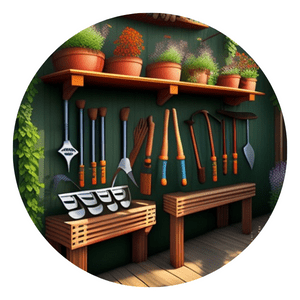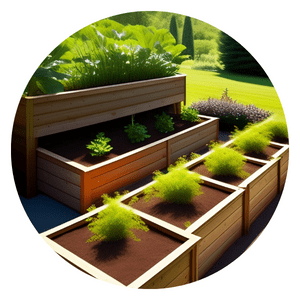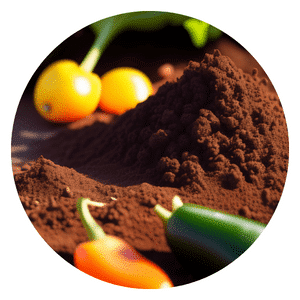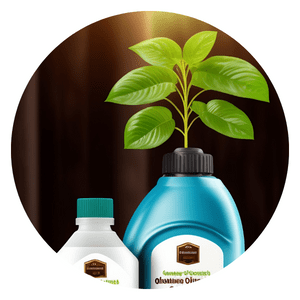Why is My Basil Dying?
Growing herbs indoors can be a great way to add fresh flavor to meals and brighten up a living space.
Basil is one of the most popular herbs for indoor gardening; however, many novice gardeners struggle with keeping their basil plants alive and healthy.
If you find yourself wondering why your basil is dying despite your best efforts, this article has the answers you need.

Basil Menu
Common Reasons for Basil Plant Dying
One common reason why basil plants die is due to overwatering.
Basil requires moist but well-draining soil, and too much water can lead to root rot and suffocation.
To prevent this problem, ensure that your pot has sufficient drainage holes and only water the plant when the top inch of soil feels dry to the touch.
Another possible cause of basil plant death is a lack of sunlight.
Basil thrives in sunny areas, so if your plant is not receiving enough light each day, it may become weak and wilted.
You should place your basil pot in a location that receives at least 6 hours of direct sunlight daily.
Lastly, pests such as aphids or spider mites can also cause damage to basil plants leading to their eventual death.
If you spot any signs of pest infestations on your basil leaves or stems, use an organic insecticide or insecticidal soap immediately to eradicate them before they spread further and do more damage.
Underwatering
One of the most common reasons why basil plants die is underwatering.
Basil needs an adequate amount of water to survive and thrive, so if you forget to water it regularly or don’t provide enough water, it can lead to dehydration and ultimately death.
Signs of underwatering include drooping leaves, yellowing or browning of the leaves, and wilting.
To prevent your basil from dying due to underwatering, make sure you check the soil moisture regularly.
Stick your finger into the soil up to your knuckle – if it feels dry, then it’s time to water your plant.
However, be careful not to overwater as well since that can also harm your basil.
If you’ve already noticed signs of underwatering in your basil plant, don’t worry too much as long as the roots are still healthy.
Give it a good watering right away and move it somewhere with indirect sunlight until its condition improves.
With proper care and attention going forward, your basil should recover from its ordeal in no time!
Common pests that affect basil plants
Basil plants are a fantastic addition to any garden, but they can be prone to pests that can cause them to wither and die.
The most common pest that affects basil plants is the aphid.
These small insects feed on the sap of the basil plant and can quickly multiply, causing significant damage.
Aphids can be controlled through various methods, including using insecticidal soap or by introducing natural predators like ladybugs.
Another pest that often attacks basil plants is whiteflies.
These tiny insects suck on the leaves of basil plants and leave behind a sticky residue called honeydew, which attracts other pests like ants.
To get rid of whiteflies, one solution is to spray water on the leaves consistently until they fall off (make sure not to spray too hard).
Another option is to use neem oil or insecticidal soap.
Finally, spider mites are another common pest affecting basil plants – these tiny mites feed on the underside of leaves and their feeding activity causes a speckled appearance on leaf surfaces as well as yellowing and wilting of leaves over time.
Managing spider mites involves regularly hosing down your plants with water and wiping away visible colonies using a damp cloth dipped in soapy water or neem oil – this will help keep populations at bay before they become too severe.
My poor Basil's not been thriving, it's turning from green to yellow-dinged, I'm wondering why my herbs aren't thriving, they used to be so glossy, now they're stinging. Had I missed a vital thing? Water or light, was it forgetting? Or perhaps too much of either? My Basil's dying, I’m regretting!
Chappy The Gardener
Soil
The soil is a crucial factor to consider when growing plants like basil.
The soil’s texture, pH level, and nutrient content are essential factors that can affect the growth and health of your plants.
One possible reason why your basil plant is dying could be due to poor soil conditions.
Basil needs well-draining soil with a pH level ranging from 6 to 7. If the soil is too acidic or alkaline, it can prevent the plant from absorbing nutrients effectively.
In addition, if the soil isn’t well-draining, it may cause waterlogging which can lead to root rot and eventually kill your basil plant.
To ensure that your basil plant grows healthily in good quality soil, you may need to amend your garden bed with organic matter such as compost or manure.
This will provide important nutrients needed for healthy growth while also improving drainage and preventing waterlogging issues that could harm your plant’s roots.
How to maintain healthy soil for basil plants
One of the most common reasons why basil plants die is due to poor soil quality.
Basil thrives in well-drained, nutrient-rich soil that has a pH level between 6 and 7.
If the soil is too compacted or lacks nutrients, it can lead to stunted growth and eventually death of the plant.
To maintain healthy soil for basil plants, it’s important to use organic compost and fertilizers.
Organic compost helps add nutrients to the soil while also improving its structure for better drainage.
Fertilizers should be used sparingly as too much nitrogen can actually harm basil plants.
Another tip for maintaining healthy soil is to rotate your crops each year.
This means planting basil in a different area of your garden every growing season to prevent depletion of nutrients in one area.
With these simple tips, you can ensure your basil plants have healthy and vibrant soil for optimal growth and production.
Tips for Growing Healthy Basil Plants
There are several reasons why your basil plant may be dying.
Firstly, it could be due to overwatering.
Basil plants need well-draining soil and should not be left in standing water as this can lead to root rot.
Secondly, insufficient sunlight can also cause a decline in the health of your basil plant.
Basil requires at least 6-8 hours of direct sunlight per day.
Consider moving your basil plant to a sunnier location or investing in grow lights.
Another reason for the ill-health of your basil plant is improper pruning techniques.
It’s important to pinch off any flowers or buds that appear on the plant as this signals the end of its growth cycle and will decrease its overall lifespan.
Additionally, pruning encourages new leaf growth which will keep your basil plant healthy and thriving.
Frequency of watering
One of the reasons for basil dying could be over or under watering.
Basil requires a moderate amount of water, and it’s essential to keep the soil moist but not soggy.
The frequency of watering depends on various factors such as temperature, humidity level, pot size, and drainage system.
During hot summer months, basil may need more frequent watering because the soil can dry out quickly.
Overwatering can lead to root rot and fungal diseases that result in yellowing leaves and stunted growth.
On the other hand, under-watered basil will have droopy leaves and wilted appearance due to lack of water intake.
The best way to check if your plant needs watering is by inserting your finger into the soil up to an inch depth; if it feels dry, it’s time for watering.
In conclusion, being mindful of how often you water your basil plant can make a significant difference in its growth and health status.
Maintaining an ideal moisture level in the soil ensures that your plant gets enough hydration without risking root rot or fungal infections caused by excessive moisture levels.
How to provide adequate sunlight
1. Basil is a popular herb that requires adequate sunlight to thrive.
If you notice that your basil plant is dying or not growing as it should, the first thing to check is its exposure to sunlight.
Basil needs at least 6-8 hours of direct sunlight every day, so make sure your plant is placed in a sunny spot where it can receive enough light.
2. If you are growing basil indoors, consider placing it near a south-facing window or under grow lights to provide sufficient light.
In some cases, moving your potted plant outdoors may be necessary if indoor conditions do not provide enough sun exposure.
3. Additionally, keep an eye on any nearby trees or structures that may be blocking the sun from reaching your basil plant.
Pruning nearby branches or relocating the plant may help increase its access to sunlight and improve its overall health and growth rate.
Remember that providing adequate sunlight for your basil (and other plants) is crucial for their survival and productivity!
How to properly prune basil plants
One of the most common reasons why basil plants die is due to a lack of pruning.
Pruning is essential for maintaining the health and productivity of your basil plant.
When you prune your basil, you remove any dead or damaged leaves and stems, as well as encourage new growth.
Additionally, pruning helps to prevent the plant from becoming too top-heavy and falling over.
To properly prune your basil plant, start by identifying any dead or yellowing leaves at the base of the stem.
Using sharp scissors or garden shears, make a clean cut just above a leaf node. This will encourage new growth in that area.
Be sure to remove any diseased or pest-infested leaves immediately to prevent further damage.
When pruning your basil plant, it’s important not to remove more than one-third of the foliage at once.
If you do need to remove more than this amount, space out your cuts over several weeks to avoid causing shock or stress on the plant.
With regular pruning and proper care, your basil should thrive and produce an abundance of delicious leaves for all your culinary creations!
Natural fertilizers for basil plants
One of the most common reasons for basil plants dying is the use of synthetic fertilizers.
These fertilizers may contain harmful chemicals that can harm the plant’s roots and soil structure, leading to stunted growth or death.
Instead, consider using natural fertilizers such as compost or vermicompost, which are rich in nutrients and beneficial microorganisms that promote healthy plant growth.
Another great natural fertilizer option for basil plants is fish emulsion.
This organic liquid fertilizer is made from fish waste and contains high levels of nitrogen, phosphorus, and potassium – all essential nutrients for plant growth.
Simply dilute it with water according to the package instructions and apply it to your basil plants every two weeks during the growing season.
Finally, consider using seaweed extract as a natural fertilizer for your basil plants.
This liquid fertilizer derived from seaweed contains essential micronutrients such as magnesium, iron, and zinc that can help improve soil health and promote strong plant growth.
Dilute it with water according to the package instructions and apply it to your basil plants once a month during the growing season for best results.
In conclusion, basil is a very hardy plant and can survive in many different conditions.
However, if you want to keep your basil healthy and thriving, it is essential to provide it with the right amount of sunlight, water, soil, and nutrients.
Overwatering or underwatering can both cause problems for your basil and should be avoided.
Pests and diseases can also affect your plants health and should be monitored regularly.
Lastly, pruning your basil will help it maintain its proper shape while encouraging new growth.
Click To Grow
Helps Us Grow – Share If You Like
















